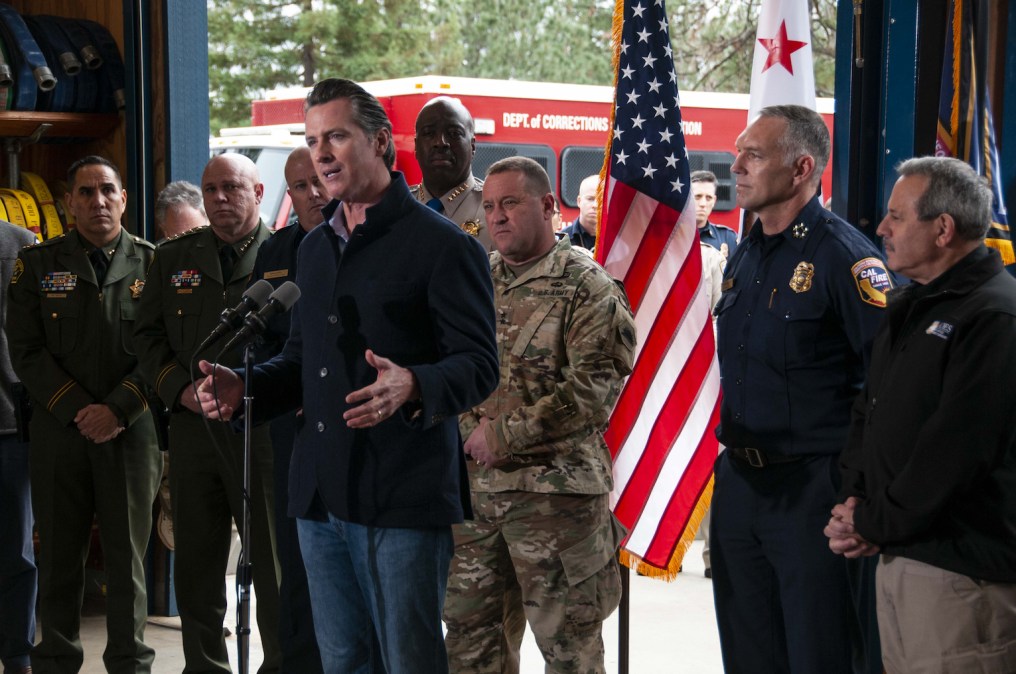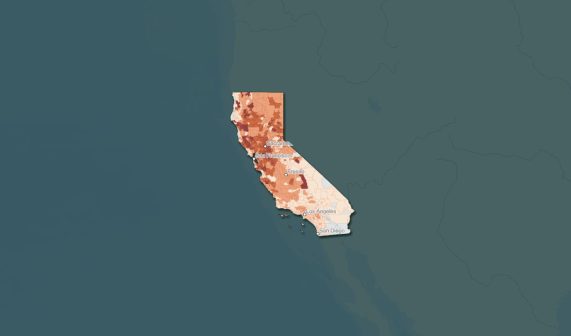California Gov. Newsom orders procurement reform for faster wildfire response

California Gov. Gavin Newsom used his first full day in office directing the state government to update its technology contracting processes with the specific goal of speeding up how it responds to the persistent wildfires that devastated wide swaths of the state last year.
Newsom signed an executive order Tuesday instructing agencies seeking tech contracts using a new kind solicitation called a request for innovative ideas, or RFI2, in which the government asks bidders to design solutions from scratch, rather than set narrow guidelines for vendors to meet. While the order could eventually extend to all statewide agencies, Newsom’s executive order reads that the new procurement model will begin with the Department of General Services and CalFire, the state’s firefighting agency.
In an RFI2 process, the soliciting agency begins by defining the problem it wants to address, but not a specific solution. The intended result is a wider field of potential vendors and more collaborative process than the typical procurement cycle. “[I]nstead of asking for a particular technology product, as with traditional procurement, we can ask for solutions to a problem we face, convene state experts, vendors, entrepreneurs and scientists from a range of industries, and challenge them to propose innovative, technological solutions to yield more comprehensive and effective results.”
The first “Innovation Procurement Sprint,” as the new approach is referred to in Newsom’s order, will be launched by DGS and CalFire ahead of the 2019 fire season, which traditionally starts in June. While the two agencies have not specified what specific fire-related problem they will attempt to solve, the order states that the first sprint will aim to deploy new technology in the field this year, with a final contract to be awarded in 2020.
“In the last two years, California has experienced some of the most destructive and record-breaking fires in the state’s history,” the order reads. “There is a pressing need for the state to identify innovative and sustainable solutions to address the state’s challenges of severe wildfires and degradations of forest health.”
Technology issues abounded during California’s 2018 wildfire season, which was the deadliest and most destructive on record. It killed 104 people — including six firefighters — and torched nearly 1.7 million acres, according to CalFire.
The impact stretched across state and local governments. The California Health and Human Services Agency, which oversees the state’s hospitals and other care centers, developed GIS-based maps to help it determine which facilities needed to be evacuated in the face of oncoming blazes. A software company that originally made video games for drone hobbyists revised one of its programs to enable the National Guard and other agencies track their personnel headed behind fire lines. And local fire departments fought with Verizon after the phone company temporarily throttled their wireless service after they exceeded their monthly data limits while using communications equipment in the field.
In March, a group of state agencies will hold a two-day conference in Sacramento to develop more technology-based solutions to wildfires.
While Newsom’s order is not intended to be a wholesale procurement reform, it was applauded by government technology observers like Jen Pahlka, the executive director of Code for America. In a Medium post responding to the order, Pahlka wrote that the new government is taking much-needed steps toward innovation with the introduction of RFI2.
“While this iterative process may not sound remarkable, in fact it stands in stark contrast to the principles of the legacy government procurement process, which assumes full knowledge of what’s needed and spends enormous resources specifying (and over-specifying) requirements,” she wrote. “There is significant consensus that traditional procurement frameworks make it extremely hard to get the intended outcomes when dealing with new, complex, or rapidly changing conditions.”
Pahlka also wrote that the use of RFI2 bids could lead to programs under Newsom’s administration resembling existing innovation channels like Startup in Residence, a program that recruits nascent tech firms to solve challenges faced by local governments that started in San Francisco and has since expanded to 81 cities.
Newsom signed the order at the state Office of Emergency Services, along with a second order instructing California’s agencies to take socioeconomic factors into account when devising emergency management plans. The orders were part of a first-day announcement of his administration’s efforts to deal with wildfires. It also includes a proposal to spend $1 billion over the next five years on forest management and a call for the U.S. government to double its funding for federal forest management.
The request for forest management funding may go unanswered. President Donald Trump published a tweet on Wednesday in which he claimed to have ordered the Federal Emergency Management Agency to cut off its wildfire recovery aid to California, accusing the state of poor forest management.
A request for confirmation from FEMA was responded to with an automated email saying the agency could not comment, due to the ongoing federal government shutdown.






